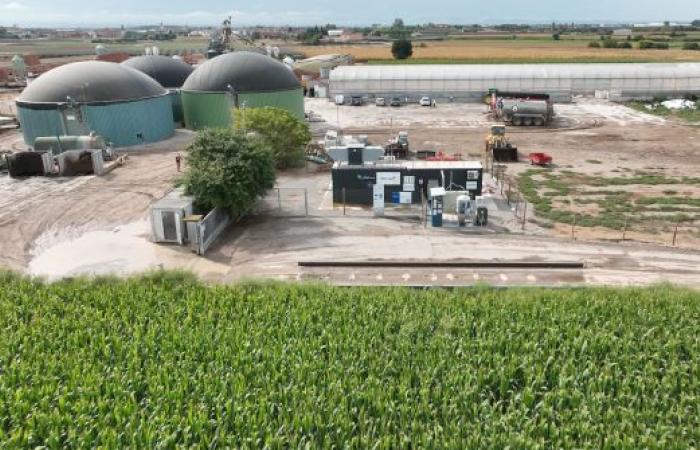
The new biomethane plant operated by Naturgy is located on the Porgaporcs livestock farm, in the municipality of Vila-Sana (Lleida). The facility will annually produce around 12 GWh/year of renewable gas that will be injected into the network of Nedgia, the Naturgy Group’s natural gas distributor, for direct consumption by homes and businesses.
Its entry into operation represents another step in Naturgy’s transformation and a very relevant milestone for Spain’s energy transition. The Vila-Sana plant alone will avoid the emission into the atmosphere of 2,450 tons of CO2 equivalent per year.
“Renewable gas plays a fundamental role in the decarbonization of the energy sector and, especially, domestic consumption such as heating. At Naturgy we are committed to promoting it with a portfolio that already includes three plants in operation and dozens of projects in development or construction,” explains José Luis Gil, general director of Renewable Gases at Naturgy.
Biomethane is strategic to meet the decarbonization objectives committed at the country level. This renewable gas, obtained from the treatment of waste of different types, meets the technical conditions to circulate through the gas distribution network and be consumed at a residential level, since its use is compatible with domestic boilers.
“This compatibility makes biomethane a great decarbonizing agent, since it allows homes to reduce their emissions without making any type of investment. Without renewable gases we will not be able to complete the energy transition,” highlights Raúl Suárez, CEO of Nedgia.
Another of the great advantages of this renewable gas is the boost to rural environments and the circular economy. Obtained from waste treatment, biomethane contributes to the decarbonisation of the primary sector and helps it achieve reduction and recycling targets. In addition, its production produces a digestate that can be used to produce organic fertilisers, completing the circular economy cycle.
Spain is the third European country with the highest biomethane production potential, although its current production figures are far below comparable countries such as France or Denmark. According to a study carried out by SEDIGAS, Spain has a total biomethane production capacity of 163 TWh, which would cover around 45% of the current national demand for natural gas.





